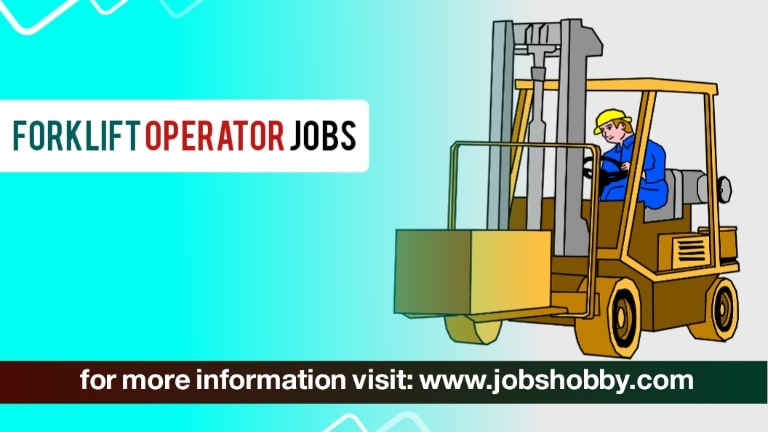In 2024, the demand for skilled forklift operators in the Philippines will continue to rise as the logistics, manufacturing, and construction industries experience rapid growth. As businesses expand their operations, the need for competent forklift operators becomes more crucial, offering numerous job opportunities across the country. This article serves as a comprehensive guide to forklift operator jobs in the Philippines, detailing the qualifications, job prospects, salary expectations, and how to secure a position in this growing field.

What Does a Forklift Operator Do?
A forklift operator is responsible for operating forklifts and other industrial vehicles to move materials around a warehouse, construction site, factory, or storage yard. Their tasks include loading and unloading goods, transporting materials to different locations, and ensuring that all operations are conducted safely and efficiently. Operators must be skilled in manoeuvring their vehicles in tight spaces and knowledgeable about the safety protocols required to avoid accidents.
Key Responsibilities:
Table of Contents
- Operating Forklifts: Safely driving forklifts to transport goods and materials within warehouses or other facilities.
- Loading and Unloading: Handling shipments and deliveries by loading and unloading trucks or containers.
- Material Handling: Moving raw materials, finished products, or other items to designated areas.
- Safety Compliance: Adhering to safety regulations to prevent workplace accidents and ensure the safe handling of materials.
- Equipment Maintenance: Regularly inspect and maintaining forklifts to ensure they are in good working condition.
Qualifications and Skills Required
To become a forklift operator in the Philippines, specific qualifications and skills are necessary. While formal education may not be required, employers often prefer candidates with relevant training and certifications.
Basic Qualifications:
- High School Diploma or Equivalent: Most employers require a minimum of a high school diploma or equivalent educational background.
- Forklift Certification: Obtaining a certification from a recognised training provider is essential. This certification ensures that the operator is knowledgeable about the equipment and safety protocols.
- Experience: While some employers may hire entry-level operators, having prior experience in operating forklifts or other heavy machinery can be an advantage.
- Physical Fitness: Forklift operators need to be physically fit, as the job often involves lifting heavy objects and standing for long periods of time.
Essential Skills:
- Attention to Detail: Precision is crucial when operating forklifts to prevent accidents and damage to goods.
- Hand-Eye Coordination: Effective coordination is necessary for manoeuvring forklifts in confined spaces.
- Problem-Solving Skills: Operators should be able to quickly assess and resolve issues that may arise during operations.
- Communication Skills: Being able to communicate effectively with supervisors and colleagues is vital for maintaining safety and efficiency.
Job Prospects for Forklift Operators in 2024
The job market for forklift operators in the Philippines is promising, with steady demand across various industries. The logistics and supply chain sector, in particular, continues to thrive, driven by the growth of e-commerce and global trade.
Industries with high demand:
- Logistics and Warehousing: The expansion of e-commerce has led to a surge in demand for warehouse workers, including forklift operators, to manage the increased volume of goods being stored and shipped.
- Manufacturing: As the manufacturing sector grows, the need for skilled forklift operators to handle raw materials and finished products also increases.
- Construction: The construction industry relies heavily on forklift operators to transport materials on-site, making this sector a significant employer of forklift operators.
- Retail: Large retail chains require forklift operators to manage inventory and ensure smooth operations in distribution centres.
Employment Opportunities:
Forklift operators can find employment in both the private and public sectors. Major companies often have dedicated positions for forklift operators, while smaller businesses may offer more generalised roles that include forklift operation as part of a broader job description.
Salary Expectations
The salary of a forklift operator in the Philippines varies based on factors such as experience, location, and the specific industry. However, the compensation is generally competitive, with opportunities for overtime and additional benefits.
Average Salary Range:
- Entry-Level Operators: Those new to the field can expect to earn between PHP 12,000 and PHP 15,000 per month.
- Experienced Operators: With a few years of experience, forklift operators can earn between PHP 15,000 and PHP 20,000 per month.
- Senior Operators/Specialists: Highly experienced operators, particularly those with special certifications or skills, can earn upwards of PHP 20,000 to PHP 25,000 per month or more.
Additional Benefits:
- Overtime Pay: Many forklift operators have the opportunity to work overtime, which can significantly boost their earnings.
- Health Insurance: Some employers offer health insurance as part of the benefits package.
- Retirement Plans: A few companies may provide retirement plans or other long-term financial benefits.
How to Secure a Forklift Operator Job in the Philippines
Securing a forklift operator job in the Philippines requires a combination of the right qualifications, experience, and job-search strategies. Below are some steps to help you land a job in this field.
Step 1: Obtain the Necessary Certification
The first step in becoming a forklift operator is to obtain the necessary certification from a recognised training centre. This certification is often a requirement for most employers and serves as proof of your competence in operating forklifts safely and efficiently.
Step 2: Gain Experience
If possible, seek out opportunities to gain hands-on experience. This can be done through internships, entry-level positions, or by volunteering for roles that involve material handling. Experience not only improves your skills but also makes you a more attractive candidate to potential employers.

Step 3: Craft a Strong CV
Your CV should highlight your relevant skills, certifications, and experience. Be sure to emphasise any specific achievements or responsibilities that demonstrate your ability to operate forklifts safely and effectively. Tailor your CV to the specific job you are applying for, ensuring that it aligns with the employer’s requirements.
Step 4: Apply to Relevant Job Listings
There are numerous job portals and company websites where forklift operator positions are advertised. Be proactive in your job search by regularly checking these platforms and applying to positions that match your skills and experience. Networking with industry professionals can also provide valuable job leads.
Step 5: Prepare for the Interview
If you are invited for an interview, be prepared to discuss your experience, skills, and knowledge of safety regulations. Employers may ask you to demonstrate your understanding of forklift operations or to discuss how you would handle specific scenarios. Show confidence in your abilities and be ready to answer any technical questions.
Conclusion
The role of a forklift operator is essential in many industries across the Philippines. With the right qualifications, experience, and job-search strategies, you can secure a rewarding position in this growing field. As demand continues to rise in 2024, now is an excellent time to pursue a career as a forklift operator.
